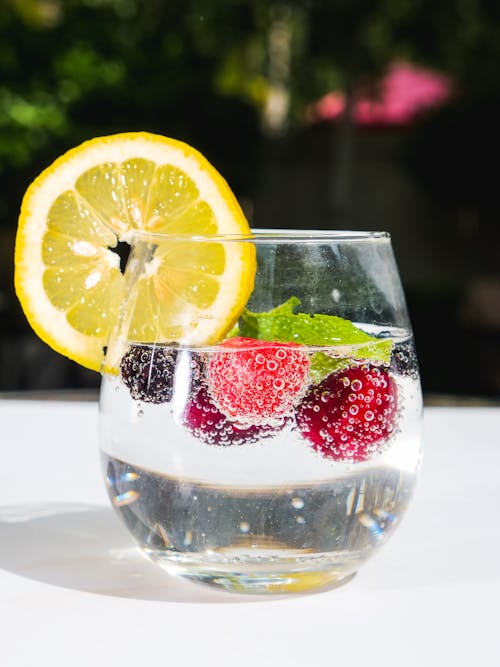Proper hydration in kids is very important!
Kids hardly ever know what’s good for them. If you let them play outside, they’ll stay out all day playing sports and forget to drink water. That can lead to dehydration.
We all expend water somehow–through our sweat, tears, urine, and stool. Water even evaporates from the skin and leaves the body as vapor when we breathe. So when children run around on a hot summer day, you can probably imagine how fast dehydration can creep up on them–even you.
Just so we’re on the same page here, Dehydration is when our body has run out of fluid to keep it functioning properly. We’re out of gas. It often happens when you don’t drink enough fluids after vigorous exercise, severe vomiting/diarrhea, fever, medications (e.g., diuretics), and hot weather.
How Can I Tell if my Child is Dehydrated?
As I said, dehydration can creep on your little ones fast. If it does, you want to be able to tell right away and work to rehydrate them. Let’s make sure your dehydration radar is up-to-date so you know what to detect:
Mild Hydration
When your kids are out and about being active, look for the following symptoms to identify mild dehydration in your child:
- dark-colored urine that’s yellow or brown
- dizziness or light-headedness
- nausea
- headaches
- dry lips, tongue, mouth, or throat
Severe Dehydration
Things can get considerably worse than mild dehydration if your child is really hamming it out that day in the blazing heat.
The following points are indicators of severe hydration in your child:
- extreme thirst
- lethargic, less active than usual
- pale and have sunken eyes
- tears may be absent when crying
- colder body–especially hands and feet
- faster breathing and irregular heart rate
- irritable, drowsy, or confused
If the aforementioned points are the case for your child, it’s recommended that you either see a general practitioner or the hospital emergency department.
Excessive water loss from the body causes organs, cells, and tissues to function improperly, leading to dangerous complications. Some complications include shock, heat exhaustion and cramps, heat stroke, seizures from electrolyte loss, kidney failure, and coma.
Build a Preference for Water in Your Child
When your child is thirsty, drinking water should be the only option. As mentioned before, our bodies lose a lot of water through sweat, breathing, and urination.
The best way to replenish that is through water and optionally milk–which has the added benefit of extra nutrition, like calcium for bone growth.
Why Not Feed My Children Sports Drinks and Juices?
Many parents consider sports drinks and fruit juice healthy. However, the reality is that these sugary drinks are less effective for quenching thirst and are not nutritional since they contain high sugar and sodium levels.
Since they’re loaded with sugar, your body requires water to metabolize them. It’s actually counter-effective. And of course, let’s not forget that excessive sugar intake from these sugar-sweetened beverages is responsible for rising rates of childhood obesity. So sugary sodas shouldn’t even be a question.
All-in-all, see that your child drinks water–throw in some ice cubes in a water bottle if you must but make sure they grow a taste for clear, healthy water. It’s a great lifelong habit to stay away from sugary drinks (for the most part, an occasional drink is okay) and drink plain water.
Enable & Encourage Healthy Hydration
When they’re out playing freeze tag, drinking water is last on a kid’s priority list. But, especially if a drink isn’t in front of them, they may not even realize how thirsty they are.
In these scenarios, you want to ensure proper hydration by periodically offering a water bottle every couple of hours or even more often if the weather is sweltering and dry.
When you’re not around to offer a drink to keep your kids hydrated, send them to school with an easy-to-carry refillable water bottle. By doing so, especially on the hot summer days, not only do you keep your child hydrated during recess and lunch breaks, but proper hydration has been shown to boost cognitive functions like memory, focus, reaction times, and mood.
Gamify Your Child’s Water Intake
An easy way to encourage kids to drink with minimal active involvement is by gamifying the process and making water fun. Kids like to play. Research has shown that gamifying educational content results in deeper learning, higher engagement, and better retention.
Kids like to play. So, create a reward system and competitive landscape where your kids are tempted to drink more water and stay healthy. For example, you may want to offer a prize for whoever drinks the water amongst kids.
Make Infused Water
Infused water is water that has fruit or herbs infused into it. The infusion gives the water a kick– like a particular flavor and can provide your kids with additional vitamins within the water.
Fill a pitcher with water and cut a few fruit slices into it–like apple, melon, strawberry, oranges, etc. Then, place it in the refrigerator a few hours before serving. By all means, you can experiment with various hydrating foods like fruits and vegetables. Cucumber-infused water, for example, is often regarded as a refreshing taste and effective in preventing dehydration.

Use Technology for Hydration Reminders
Often, even adults forget to drink water when they’re busy with their day, let alone kids, during physical activity or video games. There are smart wristbands or water bottle bands that notify you periodically when it’s time to drink water.

These bands can keep track of your hydration–like how often you drank water and remind you when it’s time again.
Hydrating Foods for More Water Intake
Instead of just infusing water with fruits and vegetables, your child’s fluid intake can consist of eating them separately, too. When the body loses water and vital electrolytes through sweating in the warmer months, some real fruit juice can keep hydration levels up and provide various nutrients.
The following seven foods contain at least 90% water, making them a great choice for your children’s hydration needs.
- Cucumbers (96.73% Water)
- Iceberg Lettuce (95.64% Water)
- Tomatoes (94.52% Water)
- Watermelon (91.45% Water)
- Strawberries (90.95% Water)
- Cantaloupe (90.15% Water)
- Honeydew Melon (89.82% Water)
You can have such whole fruit cut up and ready for your children throughout the day for some extra calories, vitamins, and nutrients, and of course, proper hydration when water gets boring, especially in the summer heat.
How Much Water is Enough for Healthy Hydration?
So, we went through how to detect when a child is dehydrated, but how do we know if our kids had enough fluids?
Note that there’s no exact number of drinks that will meet every child’s needs. Younger children generally require fewer fluids than older kids because of their different sizes and how active some may be. Of course, an uncontrollable factor is weather, too.
However, there are general ranges for how many cups children varying in age should have for their daily water intake:
- Ages 1-3: 4 cups (about 1 liter) of water and optionally water or milk
- Ages 4-8: 5-6 cups (about 1.5 liters) of water
- Ages 9+, i.e., older children: 7-9 cups (about 2 liters) of water
Another way to monitor hydration is in your child’s urine.
Alongside following those best practice ranges, an easy way to measure healthy hydration is based on the color of the urine:
- For example, slightly yellow urine indicates a healthy level of hydration.
- Yellow urine is a sign for your child to drink more water
- Dark yellow or brown urine is a teller of dehydration–your child should drink a lot of water to restore body balance.
Parting Words
You don’t need professional medical advice to know that keeping your kids hydrated is critical to their health. As mentioned earlier, it not only keeps them from collapsing but can improve their concentration and memory, too.
By following the pro tips in this article, you ensure that little ones remain in good health and are pumped with water.

Dina is a wife, mother of 4, and adrenaline junky. She loves to share children’s health information from her professional and personal experience. More About Dr Dina.










